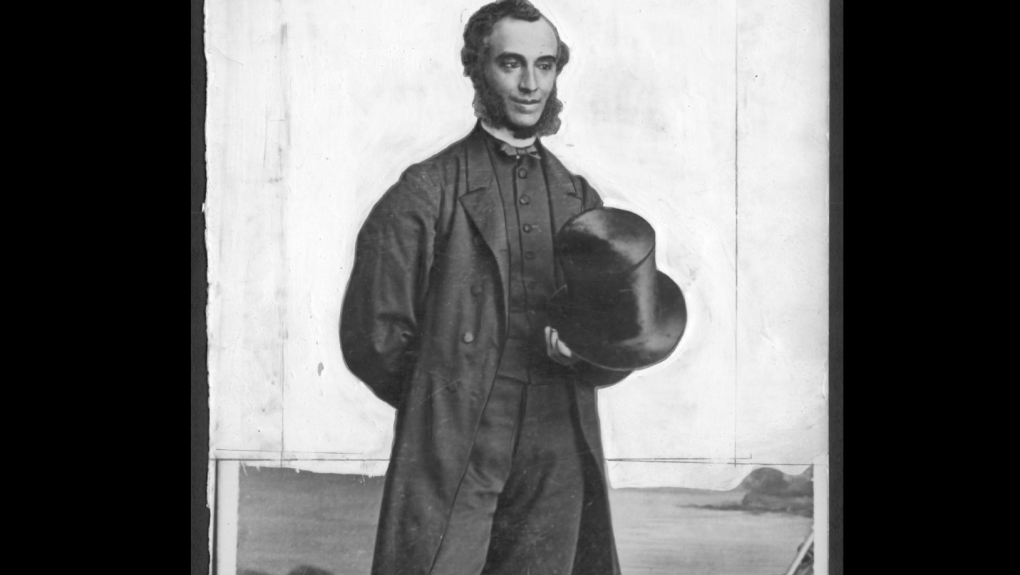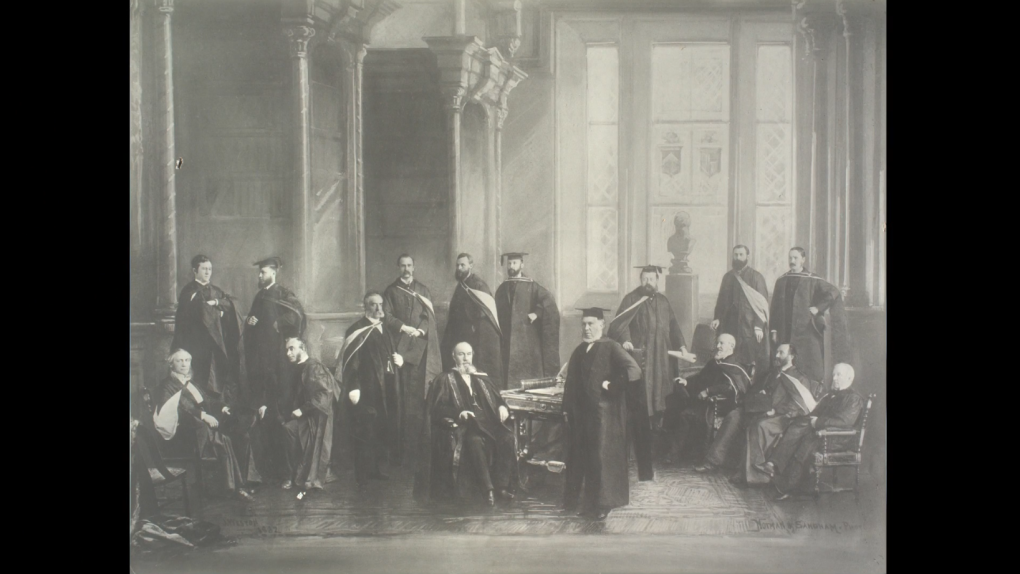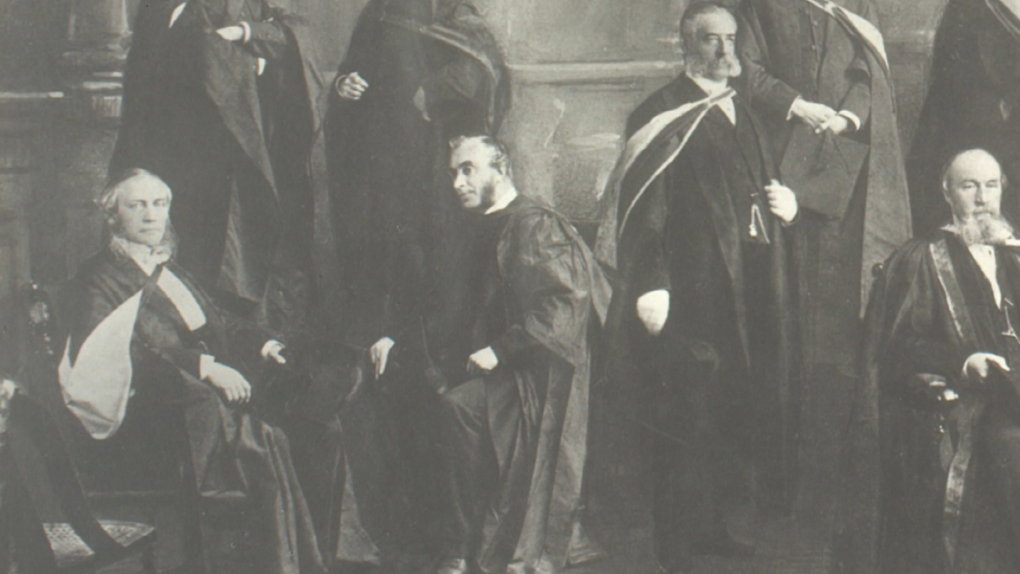A look at the lasting legacy of Canada's first Black doctor, William Wright
A brilliant and mysterious figure, William Wright is known to be the first Black doctor in Canada.
Author Frank Mackey says Wright is most known for breaking the colour barrier by appearing to seamlessly slip into the elite white world of medicine at McGill University in Montreal.
"I think at that time, there was this idea that it just wasn’t done," said Mackey.
Wright was born in Quebec City in 1827, a time when slavery was still legal in Canada.
Born to a Black father and a white mother, Wright stood out -- not only for the colour of his skin but for his intelligence, too.
"He signs on as an apprentice to this doctor who teaches at McGill and starts his medical classes there," said Mackey.
Wright would go on to work as a surgeon, an obstetrician and served as chair of the department of pharmacology -- something unheard of for a Black man in the 19th century.
“It was just this kind of, ‘Well no, you’re not going to let a negro become a doctor or anything like that," said Mackey.

In 1882, Wright's students actually complained that he wasn't keeping up on developments in medicine and asked that he be removed.
He eventually resigned and Mackey says there is no evidence to prove that his departure had anything to do with race.
Nevertheless, historian Dorothy Williams points out after the U.S. Civil War, there was a lot of backlash on university campuses.
"What happened at McGill when the students voted Dr. Wright out had actually been happening in the United States, right across America," said Williams. "Gifted professors who were teaching for five, 10 years were voted out of their positions the same way."

Wright never hid his race. In 1861, the census taker identified him as a person of colour and in the census of 1901, he was identified as Black.
However, his great, great niece, Sandra Stock, says she wasn't aware of his colour.
She says she had heard stories about him over the years, but it was only after she did a DNA test that revealed she had Black ancestry that she realized it dates back to Wright.

"It [race] didn’t seem to be important to him," said Stock. "He said who he was and so on and I thought, 'Well, good for him because he might have been able to pass for being completely white' or whatever and he didn’t. He was completely truthful."
Despite how his medical career ended, Mackey and Stock say they both believe Wright's lasting legacy will be for the barriers he broke for Black people in the medical field.
CTVNews.ca Top Stories

DEVELOPING Azerbaijan Airlines plane crashed after 'physical and technical external interference,' carrier says
Azerbaijan Airlines said Friday the passenger jet that crashed in Kazakhstan on Christmas Day experienced 'physical and technical external interference,' according to an early investigation.
What Canada can learn from Trump's 2024 presidential campaign
Donald Trump smiled wide in front of cheering supporters after millions of Americans went to the polls, choosing the divisive Republican leader as the next president of the United States in an astonishing comeback that signalled an American turn to isolationism, protectionism and tariffs.
Bloc Quebecois as official Opposition? Leader says Canadians 'don't have to fear us'
Bloc Quebecois Leader Yves-Francois Blanchet says he's staying modest about the prospect of his party forming official Opposition in the next federal election, though it would be a 'spectacular' result.
NASA spacecraft 'safe' after closest-ever approach to Sun
NASA said on Friday that its Parker Solar Probe was 'safe' and operating normally after successfully completing the closest-ever approach to the Sun by any human-made object.
Survivors describe Azerbaijan Airlines plane crash that killed dozens
Two passengers on the Azerbaijan Airlines plane that crashed in Kazakhstan told Reuters that they heard at least one loud bang as it approached its original destination of Grozny in southern Russia.
B.C woman awarded nearly $750K in court case against contractor
A B.C. woman has been awarded nearly $750,000 in damages in a dispute with a contractor who strung her along for a year and a half and failed to complete a renovation, according to a recent court decision.
Teen actor Hudson Meek, who appeared in 'Baby Driver,' dies after falling from moving vehicle
Hudson Meek, the 16-year-old actor who appeared in 'Baby Driver,' died last week after falling from a moving vehicle in Vestavia Hills, Alabama, according to CNN affiliate WVTM.
'Now's the time': As Canada ramps up housing, advocates urge more accessible builds
Amid a housing crisis that has Canadian policymakers and developers scrambling to bolster supply, those living with disability are urging leaders to enshrine accessibility into more newly built homes than the country has historically seen.
Bird poop may be the key to stopping the next flu pandemic. Here's why
A U.S. estuary outlet is an ecological wonder not seen anywhere else in the world, and a bonanza for scientists who are looking to stop the next pandemic.
































